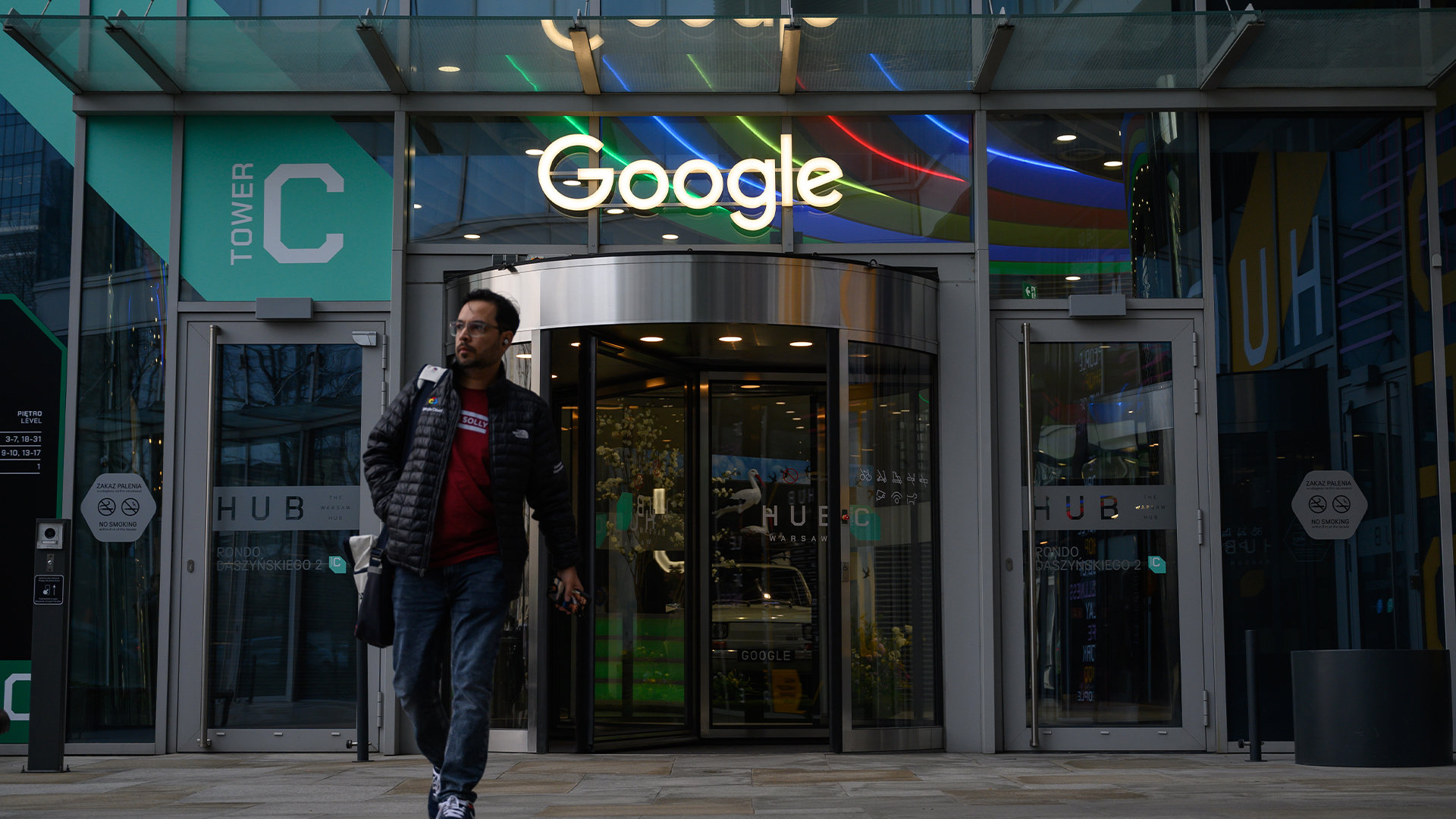Hybrid workers aren’t disconnected from office colleagues — they’re happier, more productive, and have better workplace relationships
Flexible and hybrid working practices are here to stay, and employees claim it helps them get more work done without sacrificing the connection they have with coworkers and managers


Sign up today and you will receive a free copy of our Future Focus 2025 report - the leading guidance on AI, cybersecurity and other IT challenges as per 700+ senior executives
You are now subscribed
Your newsletter sign-up was successful
Flexible and hybrid work models have a marked positive impact on employee productivity and foster better connections between staff and management, according to research from Zoom.
A survey commissioned by the firm exploring the rise of hybrid work models, their impact, and the strategic imperatives driving changes in working arrangements found the majority (64%) of enterprises had already implemented a hybrid approach.
The study spoke to over 600 IT leaders and nearly 1,900 knowledge workers from around the world, and found employees feel more productive when working in a hybrid environment.
Zoom found 84% of all employees agreed with the statement that they get more work done in a hybrid/remote work setup compared to a strictly in-office approach.
As one might expect, younger employees agreed with this statement vehemently (93%), but notably 80% of employees aged 55 and over also agreed.
The results also show workers generally don’t feel particularly less connected to their peers and managers under a hybrid working model, which has long been touted as a key downside to hybrid or remote working practices.
When asked how connected they feel to their manager, 82% of employees working under a hybrid model said they feel very/moderately connected, compared to 72% working in person, and 79% working remotely.
Sign up today and you will receive a free copy of our Future Focus 2025 report - the leading guidance on AI, cybersecurity and other IT challenges as per 700+ senior executives
“[H]ybrid workers feel the most connected in almost every way. Remote work isn’t the instigator of isolation that some make it out to be,” Zoom noted.
In terms of their connection to co-workers in their team, 87% of hybrid workers said they felt very/moderately connected to their team members, with 84% of office workers and 81% of remote workers saying the same.
If faced with the prospect of changing roles, 25% of respondents said they would consider joining a company using a flextime hybrid model, with the same number saying they would be open to working at a fully in-person organization.
The most popular option amongst employees were organizations that would let them work from anywhere (36%), compared to 22% of respondents that said they would consider a firm that would require them to work remotely from home.
The whitepaper concluded that employees value flexibility over any in office benefits companies try to use to incentivize increased in-person attendance.
"Spontaneous conversations and connections might be mild draws, but it’s clear that more employees value flexibility over office perks."
Leaders say hybrid working practices will continue to change in the near future
The survey findings indicate that, across the board, organizations are warming to flexible work arrangements, with 95% of executives claiming they have made their workplace more flexible in the last two years.
Working models will continue to evolve in the near future too, leaders claimed, with three-quarters stating they believe it’s likely their organization would change working arrangements in the next two years.
When asked what factors influenced the decision to change workplace models, the vast majority of decision makers (84%) said they would be looking to increase productivity.
Leaders added these decisions would also be driven by the need to improve their organization’s ability to tap into broader talent pools (62%), build culture (47%), reduce costs associated with their facilities (39%), retain key talent (35%), and reduce headcount (29%).
Notably, 82% of IT leaders said these changes would be oriented towards more hybrid/flexible working opportunities, stating they plan on making their organization more flexible in the next two years.
Breaking this down, 42% of executives said their organization would become “much more flexible” over this period, with 41% using the language “slightly more flexible”, and just 1% of leaders stating their firm would become “much less flexible” in the near term.
The great hybrid work pushback is failing
The debate over modern working practices has become a recurring topic in recent years. While the world was thrust into a fully-remote approach during the onset of the pandemic in 2020, the great return to the office hasn’t quite materialized.
And it’s caused repeated controversies across a range of industries, with enterprises and business leaders attempting - and often failing - to push employees back into the office full-time.
Some organizations have taken a hard line approach, implementing strict RTO mandates. Dell Technologies, for example, sparked a war of words between senior leadership and staff after introducing policies forcing hybrid employees to track attendance and mandating they enter a physical office space 39 days a quarter.
Those who classified themselves as fully remote workers also had to agree they were no longer eligible for role changes or promotions. This prompted a major pushback from employees, with the tech giant’s ‘Tell Dell’ staff survey highlighting growing levels of discontent.
RELATED WHITEPAPER

The number of firms mandating full office attendance has been gradually shrinking, however, largely due to employee pushback and workforce demands for more flexible working options.
Recent analysis from Flex Index found that while 8% of organizations were enforcing strict return to office (RTO) mandates that demanded full in-person attendance last year, just 3% are enforcing the same policies this year.
A key argument against hybrid or flexible working arrangements is that employees aren’t as productive when working at home, and research on this front has repeatedly delivered mixed results.
Some industry leaders have nonetheless stuck to their guns on the issue. Former Google CEO Eric Schmidt caused a furor online recently amidst claims that remote working was a factor behind Google’s lax performance in the generative AI race.

Solomon Klappholz is a former staff writer for ITPro and ChannelPro. He has experience writing about the technologies that facilitate industrial manufacturing, which led to him developing a particular interest in cybersecurity, IT regulation, industrial infrastructure applications, and machine learning.
-
 Stop treating agentic AI projects like traditional software
Stop treating agentic AI projects like traditional softwareAnalysis Designing and building agents is one thing, but testing and governance is crucial to success
-
 PayPal appoints HP’s Enrique Lores in surprise CEO shake-up
PayPal appoints HP’s Enrique Lores in surprise CEO shake-upNews The veteran tech executive will lead the payments giant into its next growth phase amid mounting industry challenges
-
 Are hyperscalers backing out of Net Zero?
Are hyperscalers backing out of Net Zero?ITPro Podcast Expanding data center construction and demand for high-energy workloads are pushing hyperscalers off course on carbon
-
 Microsoft CEO Satya Nadella says UK ties are 'stronger than ever' as tech giant pledges $30bn investment
Microsoft CEO Satya Nadella says UK ties are 'stronger than ever' as tech giant pledges $30bn investmentNews Microsoft CEO Satya Nadella says it's commitment to the UK is "stronger than ever" after the tech giant pledged $30bn to expand AI infrastructure and build a new supercomputer.
-
 Alphabet to spend $10bn more this year on cloud kit — taking total to $85bn
Alphabet to spend $10bn more this year on cloud kit — taking total to $85bnNews Google tops up AI and cloud infrastructure spending amid AI boom and positive results
-
 Google CEO Sundar Pichai is unfazed by AI job cuts — workers might not share the same optimism
Google CEO Sundar Pichai is unfazed by AI job cuts — workers might not share the same optimismAnalysis Google CEO Sundar Pichai is upbeat about the impact of AI on the workforce, but workers might not share the same optimism amid repeated waves of job cuts.
-
 Microsoft workers face a fresh round of layoffs – here’s who could be impacted
Microsoft workers face a fresh round of layoffs – here’s who could be impactedNews Microsoft will cut 6% of its workforce, equivalent to around 6,000 workers, as part of its latest cost-cutting drive.
-
 Google tells some remote workers to return to the office or risk losing jobs
Google tells some remote workers to return to the office or risk losing jobsNews Google has warned remote workers will need to return to the office or else lose their jobs, according to reports.
-
 Google breakup plans would ‘hurt America’s consumers, economy, and technological leadership’, senior exec claims
Google breakup plans would ‘hurt America’s consumers, economy, and technological leadership’, senior exec claimsNews Google has struck back against US regulators, claiming that plans to dismantle the company would "hurt the economy".
-
 Google faces 'first of its kind' class action for search ads overcharging in UK
Google faces 'first of its kind' class action for search ads overcharging in UKNews Google faces a "first of its kind" £5 billion lawsuit in the UK over accusations it has a monopoly in digital advertising that allows it to overcharge customers.